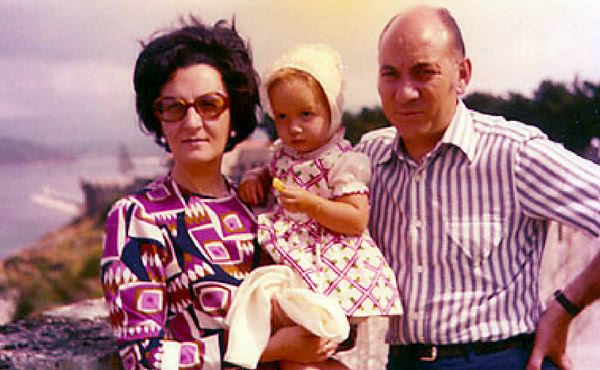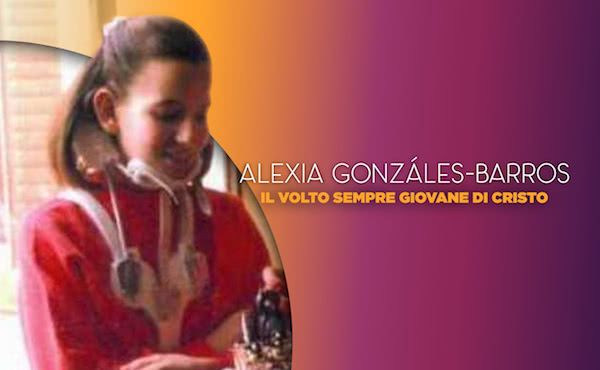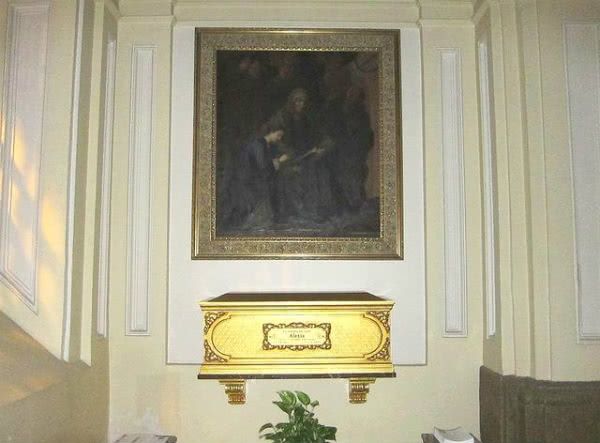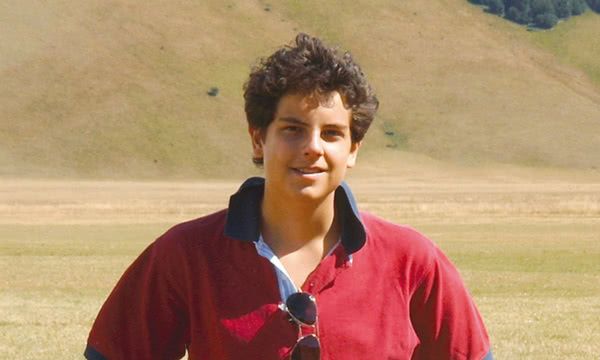Alexia, from Madrid, died in 1985, after a painful illness that left her paralyzed a year before. Carlo died in Milan, in 2006, because of an aggressive leukemia. The association promoting Alexia’s cause of canonization, in the archdiocese of Madrid, issued a statement expressing its happiness and the conviction that “many people all over the world will join us in giving thanks to God our Lord.”
Alexia was the youngest of seven children. Her parents, Francisco and Moncha, lived their Christian faith with naturalness. At the age of four she became a student at the Jesús Maestro School, run by Saint Teresa de Jesus nuns, where many people still remember her and in whose chapel she used to pray daily. When she was eight, she made her First Holy Communion in the church of Santa Maria de la Paz, in Rome; during that family trip her parents introduced her to Saint John Paul II and Blessed Alvaro del Portillo. During high school she started attending a center of Opus Dei for young girls, where she took part with her friends in cultural and spiritual activities.

At the age of 13, she was diagnosed with Ewing’s Sarcoma. The operations she had to undergo and recovery process involved great suffering. She edified everyone by her peace and ability to transmit joy amid serious illness. Her brother Francisco, in presenting the documentary Alexia by Pedro Delgado in 2011, said that “Alexia lived a clear and close relationship with Jesus. The strength of Alexia’s case rests on this: she believed.”
When preparing that documentary, Delgado discovered that Alexia “was an extroverted and very curious person. She regularly attended concerts at the Royal Theater, but was also interested in flamenco, and enjoyed Eurovision.” Her humor and strength in the face of illness inspired many other patients.

She offered her suffering for the Church and for her family and friends. Until her final moments she frequently repeated the aspiration she often used when greeting our Lord before the tabernacle: “Jesus, may I always do what You want.”
The Spanish website for the upcoming synod on young people highlights Alexia as one of the “young witnesses,” saying that “her young life has left us an example of faith and peace that helps us discover the ever-youthful face of Christ.” It also points to her simple and deep piety, “fruit of divine filiation lived in little things. Alexia had learned to trust her father God and this enabled her to be joyful even amid the greatest pains and hardships. She knew that her suffering was meaningful, that she held a treasure in her hands, and she offered it daily for the Church, the Pope and all the people she had in her heart.”

Since 2004 her body rests in the Madrid church of San Martín de Tours. Alexia’s tomb is under an oil painting that represents our Lady as an adolescent, reading in the company of her parents, Saints Joachim and Anne. Many people with devotion to her go there to ask for her intercession before God.
Carlos Acutis, an ardent lover of the Eucharist
Carlo Acutis died in October 2006, at the age of 15, owing to aggressive leukemia. The teenager, born in London but living almost his entire life in Milan, moved his family and friends by telling them he was offering all his suffering for the Church and the Pope, as Alexia had done a few years before.
From the day he received his First Communion at the age of seven, he never missed an appointment with daily Mass. He always tried, either before or after the Eucharistic celebration, to pause before the Tabernacle to adore our Lord, truly present in the Blessed Sacrament. Our Lady was his great confidant and he never failed to honor her by reciting the Holy Rosary every day. Carlo’s modern and up-to-date ways combined perfectly with his profound Eucharistic life and Marian devotion, which helped to make him a very special boy whom everyone admired and loved.

Carlo used to say to his friends: “Our goal must be the infinite, not the finite. The Infinite is our homeland. Heaven is always waiting for us.” Another phrase of his was: “All people are born as originals but many die as photocopies.” To move towards this goal and not “die as photocopies,” Carlo said that our compass must be the Word of God, which we have to strive to measure up to constantly. But in order to reach such a lofty goal very special measures are needed: the Sacraments and prayer. In particular, Carlo placed the Sacrament of the Eucharist at the center of his life and called it “my highway to Heaven.”
Carlo was very gifted with everything related to the world of computers so that both his friends and adults with computer engineering degrees considered him a genius. Everyone was amazed at his ability to understand the secrets of computers that are normally only accessible to those who have specialized university degrees. Carlo’s interests involved computer programming, film editing, website creation, editing and laying out small publications, as well as doing volunteer work for the most needy, children and the elderly. He also created a website to spread Eucharistic devotion on the internet.
“To be always united with Jesus, this is my plan of life.” These few words of Carlo Acutis outline the distinctive feature of his short life: living with Jesus, for Jesus, in Jesus. “I am happy to die because I lived my life without wasting even a minute of it on anything unpleasing to God.”